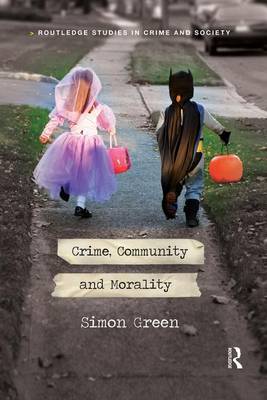Routledge Studies in Crime and Society
1 total work
Political leaders and the popular press tell us that society is in the grip of a moral crisis. ‘Where have our values gone?’ our newspapers scream at us. ‘Benefit scroungers’, ‘greedy bankers’, ‘intrusive journalists’, ‘have-a-go rioters’, political scandals and criminals of all shapes and sizes are continually cited as evidence that we live in a modern-day Gomorrah. Criminologists have studied this in several ways, including: media representations of crime, mass incarceration, hooliganism and the exercise of power and control through communities.
What criminologists have not studied is the place of morality in shaping public debate about understanding crime and how this then shapes crime control strategies. Rather than dismiss statements about community breakdown, ‘broken society’ and irresponsibility as ideological, self-justificatory rhetoric, what happens when we take these claims seriously? What do they tell us about the causes of crime? How do they shape the crime control agenda? How else might we begin to understand and explain the relationship between crime and society?
Navigating between criminological concerns about control and governance and social theories about culture and identity, this book explores what is meant by crime, community and morality and puts this meaning to the test. Discussion of a new theory of rule-breaking, combined with an analysis of how our justice system is becoming maladapted, makes this essential reading for criminologists around the globe, as well as those general readers interested in the causes of crime.
